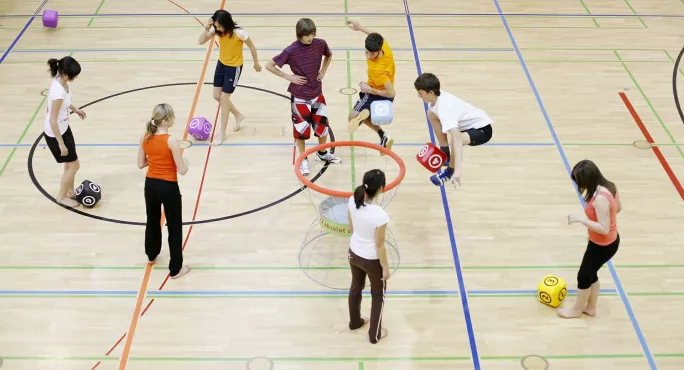- Home
- Sport and exercise are ‘essential’ for successful exam leave
Sport and exercise are ‘essential’ for successful exam leave

“Easy is not an option...no days off...never quit...be fearless. Talent you have naturally; skill is only developed by hours and hours of work.” So said Usain Bolt, the fastest man on the planet.
Undoubtedly, the world-record-shattering sprinter’s training routine was one of massive commitment and determination and I certainly don’t advocate that we should all follow such a brutal regime. For me, the key phrase in that statement is “no days off”. The human body thrives on routine and continuity.
British-born Matthew Walker, professor of neuroscience and psychology at the University of California, has made the study of sleep his life’s work and also advocates a strict life routine: he keeps “very regular hours” and says that “if there is one thing I tell people, it’s to go to bed and to wake up at the same time every day, no matter what”.
A union leader’s view: ‘High-quality sport is a necessity and an entitlement in our schools’
Revision: Are you getting it all wrong?
Tired and emotional: ‘We need to teach pupils the importance of sleep’
As exam season approaches, there is a lot of chatter about study timetables and adapting your normal schedule to accommodate revision.
Of course, this is vital, but at our school, we strongly believe that maintaining the “norm” is also critical to good exam performance: this is why our PE department keeps the school’s regular sporting timetable, and Saturday match fixture list, going throughout study leave.
“Study isolation” is not, to my knowledge, a listed medical condition. However, as every mother knows, instinct plays a huge part in raising a teen. As a mum, and someone committed to ensuring the healthy passage of teens into the wider world, I’m a strong advocate of continuing sports timetables, no matter what.
My PE team has found that bringing studying teens together provides a vital touch-point for collective discussion and a legitimate (Netflix is not a credible alternative!) chance to forget trigonometry and Latin declensions.
Study leave can seem like a strange new planet for most teenagers, and often a lonely one. Knowing that the athletics or badminton class in on, and open to them dropping in, is, we have found, a crucial anchor point in an otherwise turbulent few weeks.
In 2018, the World Health Organization (WHO) reported that mental health conditions account for 16 per cent of the global burden of disease and injury in people aged 10-19.
“Adolescence is a crucial period for developing and maintaining social and emotional habits important for mental well-being,” it says. This included “adopting healthy sleep patterns; taking regular exercise; developing coping, problem-solving, and interpersonal skills; and learning to manage emotions”.
The WHO report says that: “Supportive environments in the family, at school, and in the wider community are also important”.
Getting kids out from behind a screen, and onto a playing field, allows the oxygen and endorphins to work - both vital for effective study. However, socially, it makes the teens realise that everyone is taking part and they shouldn’t feel guilty for dodging the books for a couple of hours.
Mixing with their peers in a non-classroom environment removes pressure and, potentially, stymies anxiety. Being part of a team, even temporarily, means that others are relying on you turning up and taking part - a powerful incentive indeed.
Parents have told me that having a sporting fixture in their child’s study diary is a “positive” for the whole family: “Getting her out of the house, out of her room, has been an essential part of the last few weeks - for all of us!” one mum told me last year.
So, in an otherwise turbulent few weeks of a new regime, I try and maintain some continuity and familiar conformity to all the girls in my care.
If getting to school for sport is not possible, I’d urge parents and guardians to remember to say: “Have you done your exercise today?” - not just, “Have you done enough revision?”
Pauline Stott is director of sport at Kilgraston School in Perthshire, Scotland
Keep reading for just £1 per month
You've reached your limit of free articles this month. Subscribe for £1 per month for three months and get:
- Unlimited access to all Tes magazine content
- Exclusive subscriber-only stories
- Award-winning email newsletters